Celebrating its 75th, Grant Park Music Festival to look back and forward this season
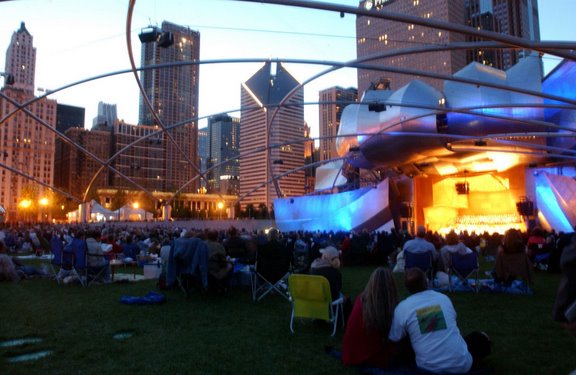
Talk about humble beginnings.
On Wednesday night, the Grant Park Music Festival will open its 75th season of free classical concerts, its home a glittering, $60.3 million, state-of-the-art outdoor venue designed by the world-renowned architect, Frank Gehry. Between opening night and Aug. 15, thousands of listeners will find their way to the north end of Millennium Park three times a week to hear the Grant Park Orchestra perform in the Jay Pritzker Pavilion, an eye-catching confection of swirling stainless steel and golden-hued Douglas Fir.
The setting was not so grand in the summer of 1935, the first season of what would later become the Grant Park Music Festival. It was the height-or the depth-of the Great Depression. James C. Petrillo, a clout-heavy bulldozer of a man and president of the powerful Chicago Federation of Musicians, was desperate to find more work for “my boys,” as he called his members. Recordings and radio were cutting into their livelihood. Struggling with low wages or jobs lost in the Depression, Chicagoans were going out less often. Restaurant and club owners as well as concert promoters needed fewer musicians for their shrinking schedules of live shows.
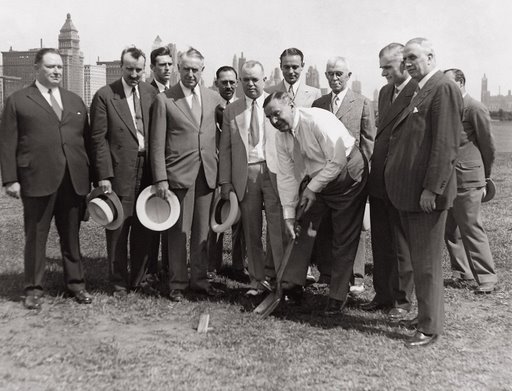
In 1933 Petrillo decided that the Chicago Park District should employ his musicians for a free series of outdoor concerts downtown. In time-honored Chicago fashion, he leaned on local politicians to do what he considered to be the right thing. Nationally known for his brass-knuckle tactics, he managed to get himself appointed to the Park District board. In 1935, the Park District agreed to pay for a nine-week season of free concerts at a small band shell standing empty at the south end of Grant Park across from the Field Museum of Natural History—but only if Petrillo would guarantee large crowds.
It was a three-way, everybody-wins situation. Petrillo’s “boys” would have nine weeks of steady pay. The Park District would bask in the glow of providing free entertainment for cash-strapped voters. And Chicagoans would have a chance to hear dance bands and symphony orchestras virtually every night of the week between July 1 and Labor Day.
Getting crowds to come was easy for Petrillo, one of the most powerful figures on the American music scene. Calling in a few of his many chits, he put together annual schedules that included such superstars as violinist Jascha Heifetz, soprano Lily Pons, baritone Lawrence Tibbett and conductor Andre Kostelanetz. Once the series got rolling, crowds of 30,000 to 35,000 were the norm. One of the biggest crowds in the early years came out to hear violinist David Rubinoff.
“He didn’t play very well,” Petrillo later recalled of the concert that drew 250,000 listeners, “but [he] was on a show with Jack Benny.”
In 1958, that number would be surpassed by the estimated 350,000 who showed up to hear the young Texas pianist Van Cliburn. The Cold War was raging, and he had just made headlines around the world by winning the International Tchaikovsky Piano Competition in Moscow.
Much has changed at the Grant Park Music Festival since 1935. Guest orchestras, including the Chicago Symphony Orchestra, filled the stage in the first decade. In 1944, the Grant Park Orchestra was formed. Now built on a solid core of top-notch freelancers and members of the Lyric Opera of Chicago orchestra, it has been the festival’s resident ensemble ever since. It remains the only municipally sponsored, free outdoor classical music festival in the U. S.
In 1978, the festival moved from its original, then-crumbling home, to a new band shell at Jackson and Columbus. Named for Petrillo and designed with the most modern technology, it was supposed to be temporary. With an eye to avoiding Chicago’s harsh winters and preserving Grant Park’s open vistas, it would be dismantled each fall and quickly reassembled each summer.
“It was what they called a de-mountable shell,” said timpanist Michael Green, a long-time orchestra member, in a conversation before the move to the Pritzker Pavilion five years ago. “Shortly after it was built, they realized that it would probably take them until November to take it down, and they would have to start in February to put it back up.” The orchestra occupied the “temporary” Petrillo Music Shell for 25 years, until July 2004 when they decamped for the Pritzker and Millennium Park.
Generations of Chicagoans have grown up with Grant Park concerts, being taken there as toddlers, returning on dates and finally visiting with their own children in tow. I recall spending dozens of summer nights at the festival with my pre-teen friends in the late 1950s. We felt very sophisticated, sprawled on blankets on the vast field in the middle of a big, beautiful city, chomping on bologna sandwiches while a live orchestra played whatever it was that live orchestras played.
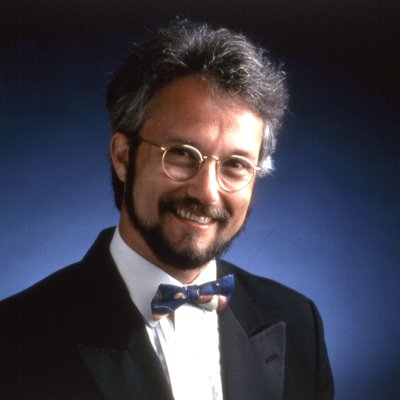
For its 75th anniversary, principal conductor Carlos Kalmer, left, will lead the the ever-lively Grant Park Orchestra in an especially rich mix of repertoire. Drilled to high precision by Chorus Director Christopher Bell, the Grant Park Chorus will join the orchestra this summer for several ambitious programs conducted by Kalmar.
On June 12 they collaborate on a Shostakovich rarity, Song of the Forests, a paean to Stalin, “the great gardener.” Elgar’s The Dream of Gerontius follows on July 31 and Aug. 1, and Beethoven’s Symphony No. 9 closes the season Aug. 14-15.
The chorus also will be featured in the world premiere of Michael Torke’s Plans, a work inspired by Daniel Burnham’s famous Plan for Chicago of 1909. Commissioned by the festival and featuring soprano Jonita Lattimore and tenor Bryan Griffin, it will be performed June 19-20 under Kalmar’s baton. The chorus offers a double operetta bill, of Gilbert and Sullivan’s The Pirates of Penzance and The Mikado July 10 and 11.
Two programs specifically recall the festival’s 75th anniversary. At 8 p.m. July 1, 75 years to the day after the inaugural concert at the old band shell, Kalmar and the orchestra will offer exactly the same program under the Pritzker Pavilion’s shiny curlicues.
The lineup is a mad mix, opening with the Arrival of the Guests from Wagner’s Tannhauser and closing with the American Patrol March by F. W. Meacham (a jitterbug hit for Benny Goodman in the 1940s.) In between are assorted tidbits, including an opera overture, a Strauss waltz and a Liszt Hungarian Rhapsody.
Music from the 1930s is the focus June 26 and 27 when the orchestra moves indoors to the Harris Theater, just north of the Pritzker Pavilion on Randolph Street. Kalmar conducts a program including William Grant Still’s Afro-American Symphony, William Schuman’s American Festival Overture, Samuel Barber’s Overture to The School for Scandal and The Prairie, A Poem for Orchestra after Carl Sandburg by Chicago composer Leo Sowerby. Tim Samuelson, cultural historian for the City of Chicago, will be the narrator.
The festival is in a state of transition this season. James W. Palermo, artistic and general manager since 1995, planned the season but left in March to become president and chief executive officer of the Colorado Symphony Orchestra. A search committee is researching candidates, and the festival hopes to name a successor by the end of the summer, according to Tony Macaluso, director of marketing and patron services.
There will be one big change this season. The festival’s Independence Day concert, traditionally held the evening of July 3, has been moved to 1:30 p.m. July 4. But the festival’s emphasis on unusual repertoire, emerging talent and cross-cultural programming continues, according to Leigh Levine, orchestra manager since 1999. She worked closely with Palermo on planning the 75th anniversary season.
Among the artists to watch, she said, is Gilbert Varga, a Hungarian-born conductor who leads the orchestra July 15 and 18 in a program of Offenbach, Ravel, Roussel and Franck. A rising young talent is Ukrainian-born Kiril Karabits who becomes principal conductor of Britain’s Bournemouth Symphony Orchestra next season. He leads a Russian-flavored program at Grant Park July 17.
After five years at the Pritzker Pavilion, Grant Park Orchestra musicians and audience are still thrilled with the venue’s beautiful looks and stunningly vivid acoustics.
“It’s a dream,” said Laura Miller Boen, assistant principal second violin and an orchestra member since 1988. “Acoustically, it’s fantastic. There’s not a sound system like it in the U. S.” Pritzker Pavilion is a vast improvement, she said, over the Petrillo Music Shell. Critics, audiences and musicians complained for years about that shell’s dead acoustics.
North Side resident Maita Adolph and her husband, Howard, have been coming to the Grant Park Music Festival for decades and usually attend two concerts a week. She terms the new pavilion “fabulous, just awesome,” but she especially values the friends they have made at the festival over the years.
“We went to Alaska a few years ago,” she said, “but I was really annoyed because it cut into the summer. I missed two weeks of concerts. To me, more is better. It’s family.”
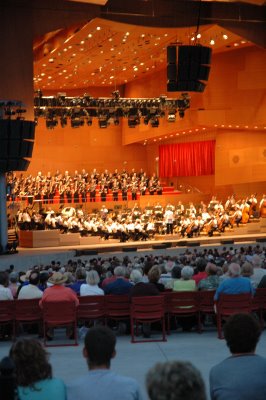
Grant Park concerts are usually held at 6:30 p.m. Wednesday and Friday and 7:30 p.m. on Saturdays. The public also is welcome at open rehearsals, usually held from 11 a.m. to 1:30 p.m. on Tuesday, Wednesday and Friday.
Also this season, Pritzker Pavilion will be offering a series called Made in Chicago featuring chamber-sized jazz concerts on selected Thursdays, along with a world music series on assorted Sundays and Thursdays. On Mondays, the pavilion will offer either chamber music in a series called Dusk Variations or a Downtown Sound series highlighting indie rock groups. Those concerts are also free.
The Pritzker Pavilion is east of Michigan Avenue between Randolph and Monroe. There are 4,000 fixed seats and space for 11,000 on the lawn. Admission is free, but memberships, which guarantee seats for the season, are available beginning at $80 per person. The festival had more than 4,500 members last year, but at least 2,000 of the fixed seats are open to the general public free of charge at every concert.
A new, lavishly illustrated book, “Sounds of Chicago’s Lakefront/A Celebration of the Grant Park Music Festival,” is available in selected book stores for $39.95 and through the festival for $33.
For information on the festival, call 312-742-7638 or log onto www.grantparkmusicfestival.com.
Wynne Delacoma was the classical music critic for the Chicago Sun-Times from 1991 to 2006. She continues to write on a free lance basis for that paper, Musical America.com and other outlets.
Since 1982 she has been an adjunct faculty member at Northwestern University’s Medill School of Journalism teaching arts reporting and criticism as well as general reporting. A Chicago native, she earned a bachelor’s degree in journalism from Marquette University in Milwaukee and a master’s degree in music history and literature from Northwestern’s School of Music.
Married to an avid sports fan, she knows far more about baseball and college football than she would like.
Posted in Articles
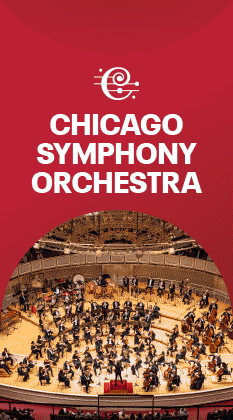
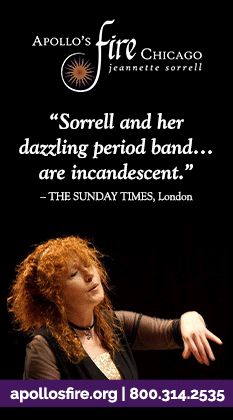
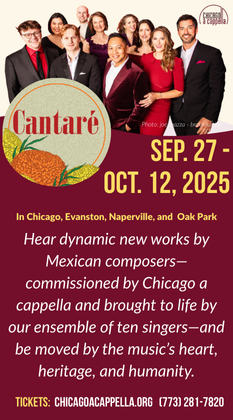
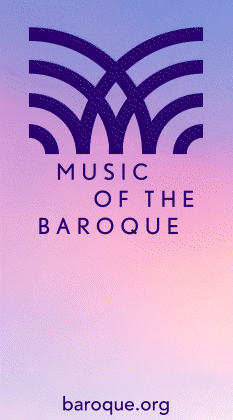
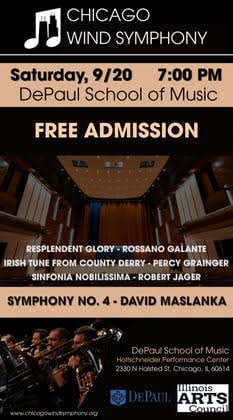
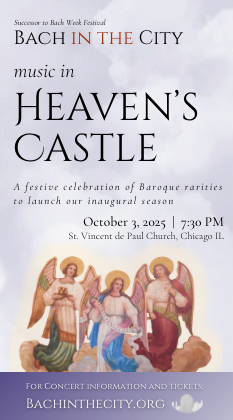
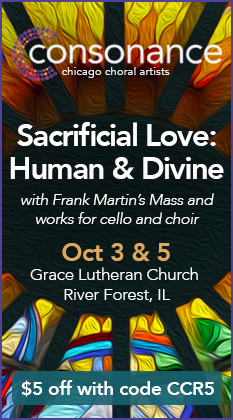
Posted Jun 06, 2009 at 6:32 pm by Michael Scott
Don’t you think that you could mention that Stephen Hough is going to open the season with the Tchaikovsky Concerto Cliburn was so “famous” for 50 years ago?
Seems like you left out a very important part of the opening night lineup.
Posted Jun 07, 2009 at 12:13 am by Nick
Humble beginnings indeed. Thanks for that article.
Posted Jun 07, 2009 at 9:43 am by Elise Curran
Hi! Enjoyed the article, as I got to go to Grant Park 2 or 3 times the summer Ispent in Chicago singing at the Bel Canto Institute at Northwestern, and I really enjoyed it. It was nice to find out the history of the series.
A small correction, however….it was Glenn Miller who arranged “American Patrol” for his big band, not Benny Goodman.